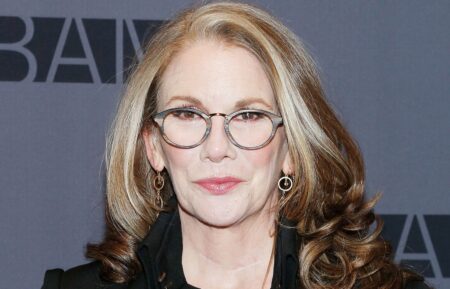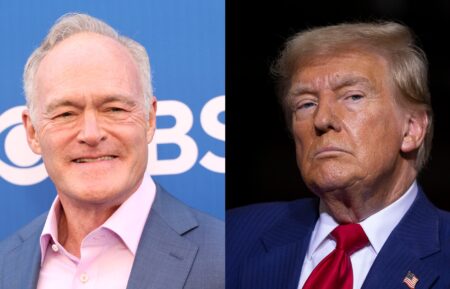Why Have TV Networks Turned Against Nielsen Ratings?

For decades now, television shows have lived and died by Nielsen ratings, since those viewership statistics have traditionally helped TV networks determine which shows to renew and cancel for maximum ad revenue. But now there’s bad blood between those same networks and Nielsen, with accusations that Nielsen has undercounted viewers during the pandemic and, in a late-breaking development, a push to take away Nielsen’s accreditation.
The discord made headlines in April, when the Video Advertising Bureau—an industry group representing ABC, CBS, Fox, NBC, and other TV networks—demanded that Nielsen undergo a third-party audit from Ernst & Young.
Nielsen said it had “full confidence” in its TV ratings measurement, as Variety reported at the time, but the VAB contended that Nielsen had undercounted viewership over the pandemic, namely the period between March 2020 and March 2021.
In its complaint, the VAB suggested that Nielsen hadn’t maintained the measurement technology in the “panelist” households that participate in its research, with the VAB citing a “20 percent loss of the panel.” The organization also observed an increase in “zero-viewing TV homes” and expressed suspicions that Nielsen was tracking data from homes whose residents moved closer to family during the COVID-19 crisis.
“I am conveying to you in the strongest possible terms the VAB’s profound dissatisfaction and concerns with Nielsen’s handling of our industry’s months-long urging for rightsized remedies to shortfalls in the company’s COVID period TV usage and measurement data,” VAB CEO Sean Cunningham wrote in a letter to Nielsen CEO David Kenny, per Variety.
But Nielsen rejected the proposed Ernst & Young audit later that month, saying that it already gets an annual audit from the Media Rating Council, a nonprofit organization that provides accreditation to media research companies.
“Third party auditing has always been a vital part of serving as the industry currency and our products undergo a comprehensive audit process with the Media Rating Council on an annual basis,” Nielsen said in a statement at the time, as Forbes reported. “Nielsen’s existing MRC audit process exists to ensure confidence and trust in the audience estimates we produce.”
And now the VAB is asking the Media Rating Council to pull Nielsen’s accreditation, having sent the MRC a 10-page letter on the topic earlier this month. “Nielsen’s COVID-period conduct as a ratings service violated at least five minimum standards, with the damage done to their largest subscriber clients still creating material negative impact into July 2021,” the VAB letter stated, per Variety.
In its own statement, Nielsen said it was “fully committed to returning to pre-COVID operations and are working closely with and through the MRC to address any outstanding issues and requests and are committed to their process concerning accreditation.”
The struggle over pandemic-era ratings comes as TV networks grapple with larger questions of how to measure viewership in the streaming era, especially with so many households cutting the cable.
“With streaming becoming more and more of the total audience, Nielsen will continue to have the same kinds of problems for the next four years or until whenever the new fully integrated Nielsen methodology is firmly in place,” Bill Harvey, chairman of Research Measurement Technologies, told Forbes in May.
And Marshall Cohen, former head of research at MTV Networks, AOL, Current TV, and Univision, explained to Forbes that he had trouble with Nielsen in the past. During his time at MTV Networks, for example, he witnessed a 20-percent dip in teenagers in Nielsen’s sample, which “impacted our MTV ratings and caused harm to our business, but Nielsen never figured out what actually happened.”
Then, during Cohen’s time at Univision, his team “discovered that not enough was being done to recruit and install the appropriate number of ‘Spanish only’ households (another important demographic segment), because few members of the field force spoke Spanish,” he said.
“I am not suggesting that Nielsen did anything wrong, because I do not have the data to determine that,” Cohen added. “But they certainly need to always say (honestly and specifically) what they do—and do exactly what they say they are doing.”
From TV Guide Magazine
'America's Got Talent': Simon Cowell Teases Big Changes in Season 20 as Mel B. Returns
The show’s judges and host preview the landmark season and reflect on how they’re keeping it fresh. Read the story now on TV Insider.









